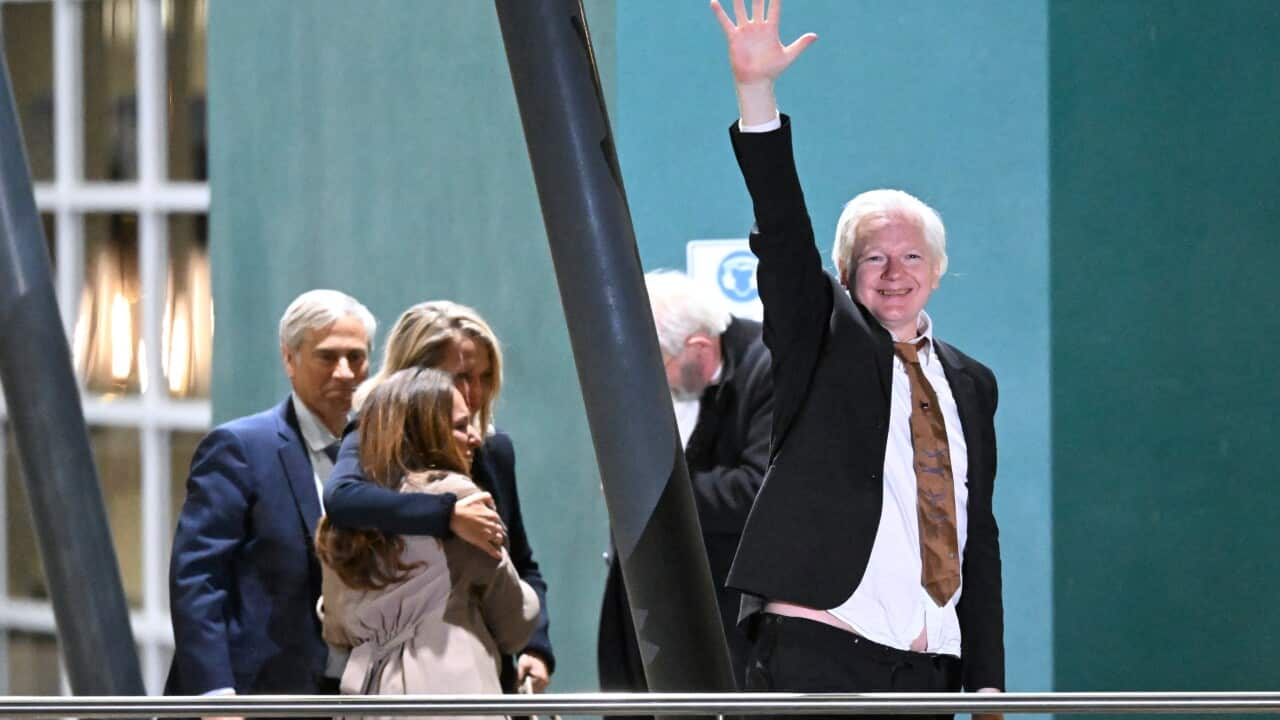Key Points
- WikiLeaks founder Julian Assange says his freedom after years in prison is not "because the system worked".
- Assange's first public remarks since his release came during an address to the Council of Europe in France.
- Assange pleaded guilty to disclosing US military information in June, ending a lengthy legal saga.
Julian Assange says he was freed after years of incarceration because he "pled guilty to journalism".
"I am not free today because the system worked," the Australian WikiLeaks founder said during an address to the Council of Europe in Strasbourg, France, on Tuesday — his first public remarks since he was released from prison.
He has been giving evidence to its Parliamentary Assembly, which includes parliamentarians from 46 European countries, on his detention and conviction and their effects on human rights.
"I am free today after years of incarceration because I pled guilty to journalism," Assange said.
"I pled guilty to seeking information from a source."
Assange was released in June after five years in a British prison. He pleaded guilty to obtaining and publishing United States military secrets in a deal with US Justice Department prosecutors that concluded a drawn-out legal saga.
Before his time in prison, he , where he claimed asylum on the grounds of political persecution.
The internet publisher was accused of receiving and publishing hundreds of thousands of war logs and diplomatic cables that included details of US military wrongdoing in Iraq and Afghanistan.
His activities were celebrated by press freedom advocates, who heralded his role in bringing to light military conduct that might otherwise have been concealed. Among the files published by WikiLeaks was a video of a 2007 Apache helicopter attack by American forces in Baghdad that killed 11 people, including two Reuters journalists.
But critics say his conduct put American national security and innocent lives — such as people who provided information to US forces in Iraq and Afghanistan — at risk and strayed far beyond the bounds of traditional journalism duties.
The years-long case ended with Assange entering his plea in a US district court on the Northern Mariana Islands, an American commonwealth in the Pacific.
Assange pleaded guilty to an Espionage Act charge of conspiring to unlawfully obtain and disseminate classified national defence information.
A judge sentenced him to the five years he had already spent behind bars in the UK fighting extradition to the US.
Assange returned to Australia a free man in late June. At the time his wife, Stella, said he needed time to recuperate before speaking publicly.
His appearance on Tuesday came after the Council of Europe's Parliamentary Assembly published a report on Assange's detention in a high-security UK prison for five years.
The assembly's human rights committee said Assange qualified as a political prisoner and issued a draft resolution expressing deep concern at his harsh treatment.











